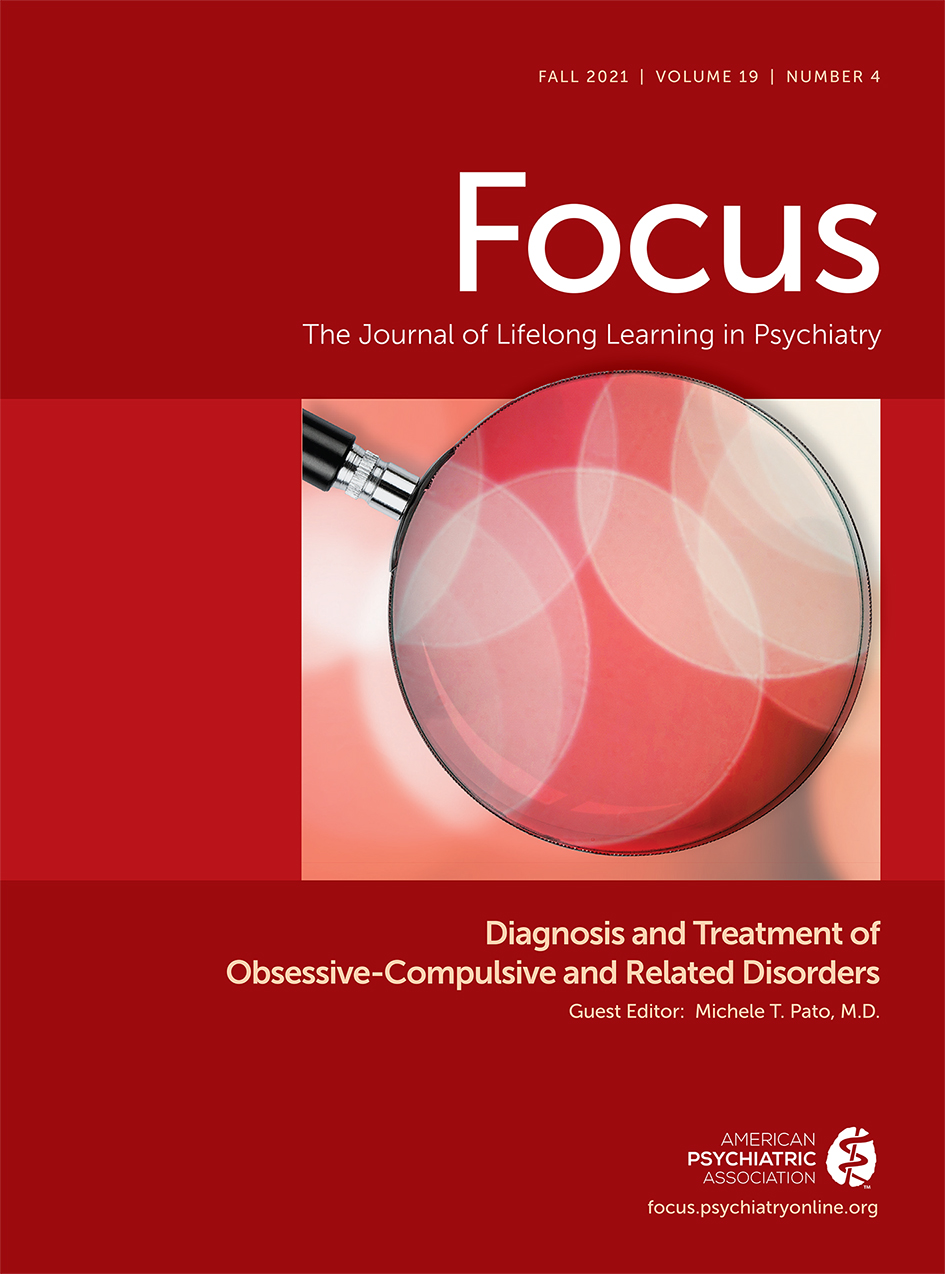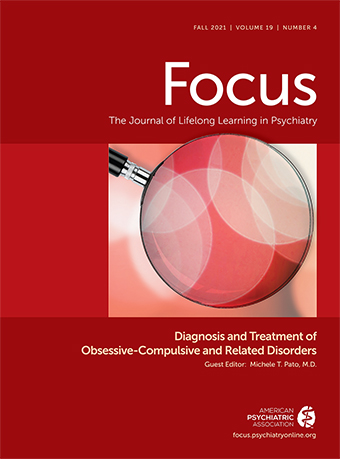What Have We Learned About the Genetics of Obsessive-Compulsive and Related Disorders in Recent Years?
Abstract
One of the most striking changes in DSM-5 is the introduction of a new section called Obsessive Compulsive and Related Disorders. . . . It contains obsessive compulsive disorder (OCD), body dysmorphic disorder (BDD), trichotillomania (hair-pulling disorder), hoarding disorder, and excoriation (skin-picking) disorder. OCD was previously classified among the anxiety disorders; BDD was a somatoform disorder, and trichotillomania was an impulse control disorder. Both hoarding disorder and excoriation disorder are new diagnostic entities. The common feature of these disorders is the presence of persistent interfering obsessions, preoccupations, or repetitive behaviors. Although tic disorders and Tourette’s disorder are listed elsewhere in DSM-5, these neurodevelopmental disorders are also characterized by repetitive motor or vocal behaviors and share considerable comorbidity with OCD. The well-established relationship between tics and some forms of OCD has been codified in the DSM-5 criteria for OCD by asking the clinician to specify if the case is ‘tic-related’ (current or past history of a tic disorder).
OCRDS Are Complex Multifactorial Disorders
Twin and Family Studies
Twin Studies (Monozygotic Versus Dizygotic Twins)
Family Studies
Genome-Wide Genetic Studies
Common Variation
Copy Number Variation
Rare (Coding) Variation
Epigenetic Studies
Studies Across Diagnostic Boundaries
Need for Larger Sample Sizes
Current and Future Directions
References
Information & Authors
Information
Published In
History
Keywords
Authors
Competing Interests
Metrics & Citations
Metrics
Citations
Export Citations
If you have the appropriate software installed, you can download article citation data to the citation manager of your choice. Simply select your manager software from the list below and click Download.
For more information or tips please see 'Downloading to a citation manager' in the Help menu.
View Options
View options
PDF/EPUB
View PDF/EPUBLogin options
Already a subscriber? Access your subscription through your login credentials or your institution for full access to this article.
Personal login Institutional Login Open Athens loginNot a subscriber?
PsychiatryOnline subscription options offer access to the DSM-5-TR® library, books, journals, CME, and patient resources. This all-in-one virtual library provides psychiatrists and mental health professionals with key resources for diagnosis, treatment, research, and professional development.
Need more help? PsychiatryOnline Customer Service may be reached by emailing [email protected] or by calling 800-368-5777 (in the U.S.) or 703-907-7322 (outside the U.S.).

